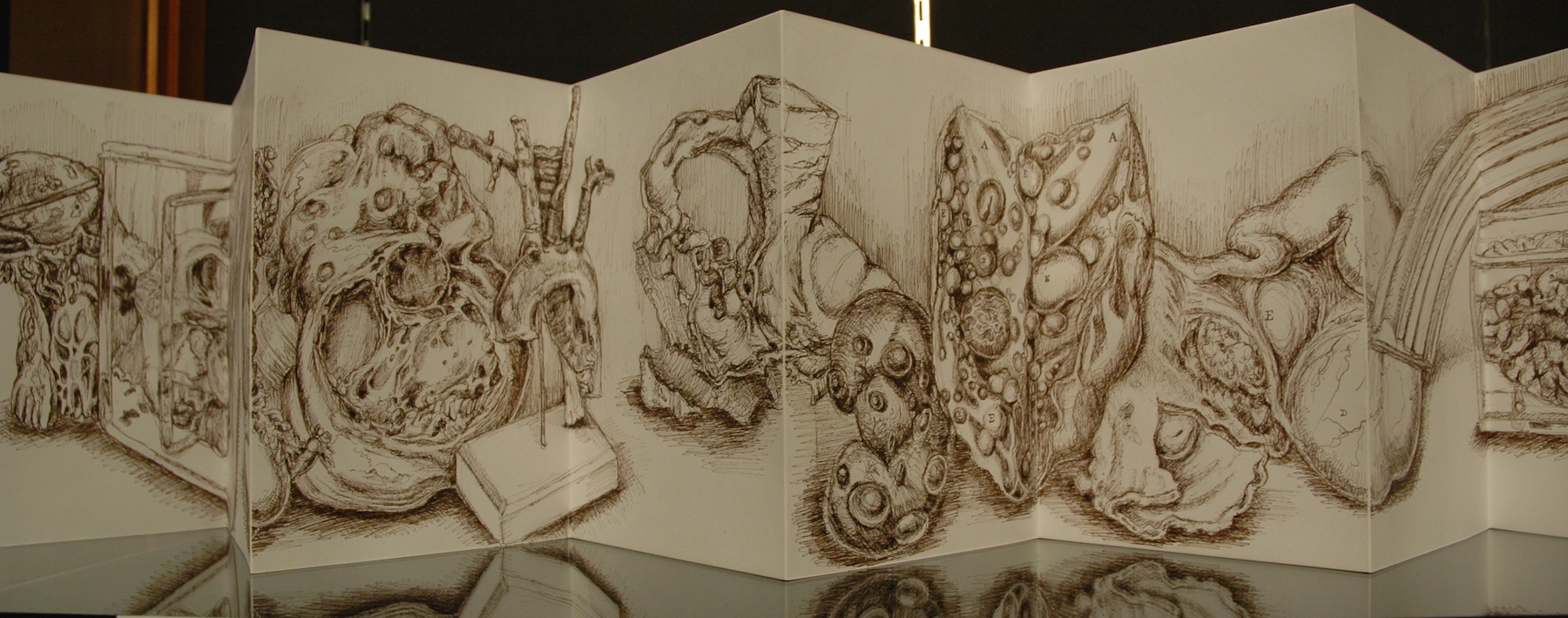Learn about previous creative workshops below.
View all Close all
Animated Tales: Voices and stories from behind the fence
Animated Tales II, Animation Workshop
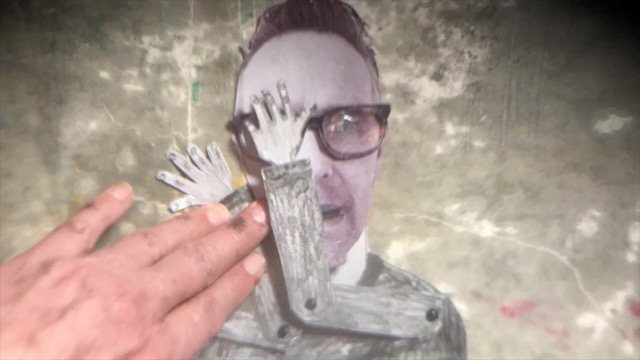
Introduction to Tony Gammidge’s work in secure settings. Create your own stop-frame animation in this whole day workshop.
Artist, animator and film-maker Tony Gammidge is offering a unique opportunity to take part in an experiential stop-frame animation workshop. Tony is best known for his animation and storymaking projects in prisons, secure psychiatric settings and his work with refugees. Last year Tony introduced the Open Spaces community to his extraordinary work in secure settings which was then discussed with Prof of Offender Healthcare, Annie Bartlett, and participants. By popular demand, and as a follow up to this, Tony has agreed to screen some examples of his new work and facilitate a one-day workshop where you will learn the basics of stop-frame animation and alongside others, begin to tell an embodied story, using simple materials such as plasticine, clay, paper and wire.
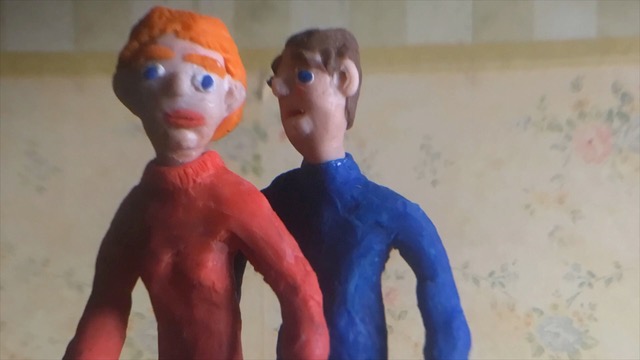
Tony Gammidge is an artist, filmmaker, animator and state registered art therapist. He has run collaborative participatory animation and storymaking projects in prisons, secure units and in psychiatric settings for the last 12 years and is a member of the Art Refuge team who provide art and art therapy to displaced people in France and the UK.
He makes his own animated documentary films drawing on personal autobiography and also runs Animated Tales which provides training to arts therapists, clinicians, educators, artists/non artists and students in animation and storymaking.
Animated Tales, Animation Workshop
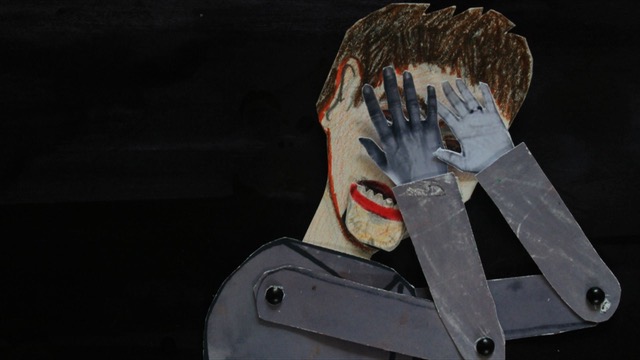
Award winning Artist, Art Therapist and Animator, Tony Gammidge (www.tonygammidge.com), will screen a selection of extraordinary animated films co-created in prisons, secure units and with asylum seekers from Calais and Freedom from Torture.
These films will be used as a starting point for an in conversation with Consultant Psychiatrist and Professor of Offender Healthcare, Annie Bartlett (St George’s – give link to Annie’s profile) opening up to a wider discussion with workshop participants. The evening will explore the importance of working with narrative with people who are often disempowered and traumatised and how working in this way can give participants a sense of agency and responsibility for their own stories. It will highlight how the animation process can be a safe and powerful medium through which to tell trauma narratives and through conversation between two experts approaching the topic from different perspectives, raise urgent questions around whose stories are heard, what is the line between fiction and non-fiction, through whose language are such stories told and what is the value of story to healing?
Animation in Trauma Settings
Artist and Art Therapist Tony Gammidge will discuss the animated films he made with participants in prisons, secure units and with refugees and asylum seekers. He will explore how this medium enables contributors to tell their story in a safe and powerful way.
You will also be invited to try some stop-frame animation over tea and cake!
Thinking ‘otherWise’: Decolonisation of knowing through blackout poetry

This workshop takes a creative approach to collaboratively decolonise ‘decolonisation’ by co-creating blackout poetry.
It offers you the opportunity to critically contest your current understandings of ‘decolonisation’ and to (re)imagine ways of challenging coloniality embedded in the process of learning and living. The workshop creates the space to move away from colonial designs of thinking through a ‘rationale’ of fantasy and fabrication.
Blackout poetry is a simple art form that helps articulate complex realities. It allows the creation of new meanings by disrupting the meanings of an already existing written text (a poem, a page from a newspaper article, report, book etc.).
You are not required to be familiar with blackout poetry or be a ‘poet’ yourself to actively engage with this workshop. No previous experience or understanding of poetry necessary to attend this session. Just a willingness to participate.
Creative writing workshop: Why writing is always worth the effort
Facilited by Professor Alison Baverstock, this session seeks to look at the benefits involved in writing, and why reflecting and storing one’s thoughts is always worth it as an end in itself – whether or not a sharable outcome is achieved.
The facilitator will explore her own process and experience in a variety of different formats and for a wide range of audiences, interweaving these with short writing exercises to get you going. Join us to get writing! All welcome. No experience necessary.
Rev’d Professor Alison Baverstock is Professor of Publishing at Kingston University (KU), Director of The KU Big Read and Reading Force and interim Director of Research, Business and Innovation at the School of Cultural Studies and Creative Industries, KU.
Creative Writing Workshop II: Listening to your writing voice
Do you have an interest in writing poetry? Why not join this workshop which introduces ways to start writing a poem and concentrate on how to listen to your own writing voice as the poem develops. During the session we will be reading and discussing examples of published poems and then engaging in a series of short writing exercises. There will be an open invitation to share your writing with the group for those who would like to do so.
Professor Sharon Morris has published two collections of poetry and an artist’s book of poems and images with Enitharmon Press and Editions. As part of her teaching at the Slade School of Fine Art, UCL, she set up the Slade Poetry Shed as an on-line resource for writing and writing workshops. She has also run poetry workshops for asylum seekers, including a series entitled ‘Mother and Other Tongues’, focussing on different languages.
Creative Writing Workshop
Facilitated by Professor Alison Baverstock, Kingston University.
A follow up to last years successful workshop, we are pleased to offer a practical and informative workshop exploring how and why it’s worth building a writing practice – even though your life is already packed. Alison will cover both the benefits and the practical stages involved, and the workshop will be peppered with opportunities for practical involvement – with plenty of opportunities for questions.
Open to Write facilitated by Sharon Morris
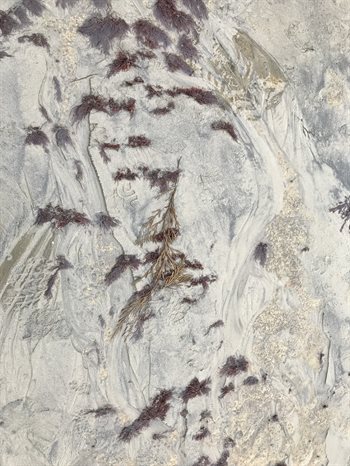
We will look at types of poetry and Sharon will set some practical exercises in ways of writing. You are welcome to write in any language and/or bring languages together. Please bring a pencil or a pen and a piece of paper for a workshop aimed at opening up your writing.
There will be no requirement to share your writing and no previous experience of poetry necessary.
This is a writing workshop designed to help you to start a piece of creative writing, with suggestions as to how to write into the blank page. We will be looking at a selection of short poems as examples of how poetry harnesses the power of language to bring together feelings and ideas. The writing exercises centre on prompts to enable you to write what you most want to say. You are welcome to write in more than one language and to include translations or not.
Professor Sharon Morris has published 2 collections of poetry and an artist’s book of poems and images with Enitharmon Press and Editions. As part of her teaching at the Slade School of Fine Art, UCL, she set up the Slade Poetry Shed as an on-line resource for writing and writing workshops. She has also run poetry workshops for asylum seekers, including a series entitled ‘Mother and Other Tongues’, focussing on different languages.
Airhead with Emily Maitlis
We are pleased to offer a practical and informative workshop exploring how and why it’s worth building a writing practice – even though your life is already packed. Alison will cover both the benefits and the practical stages involved, and the workshop will be peppered with opportunities for practical involvement – with plenty of opportunities for questions.
In the long run, writing and reflecting builds empathy, objectivity, and can provide a means of further income in the future (as Dr Adam Kay knows well).
The session will draw on a range of sources for inspiration, including Airhead by Emily Maitlis — the book chosen for this year’s Big Read at St George’s. The session is also part of the Big Read’s schedule of activities. Alison is the author of ‘Is there a book in you?’ and ‘Marketing your book, an author’s guide’ – both published by Bloomsbury – and jointly established Kingston’s MA Publishing at Kingston (now the top such course in London).
An Introduction to Graphic Medicine with Dr Ian Williams
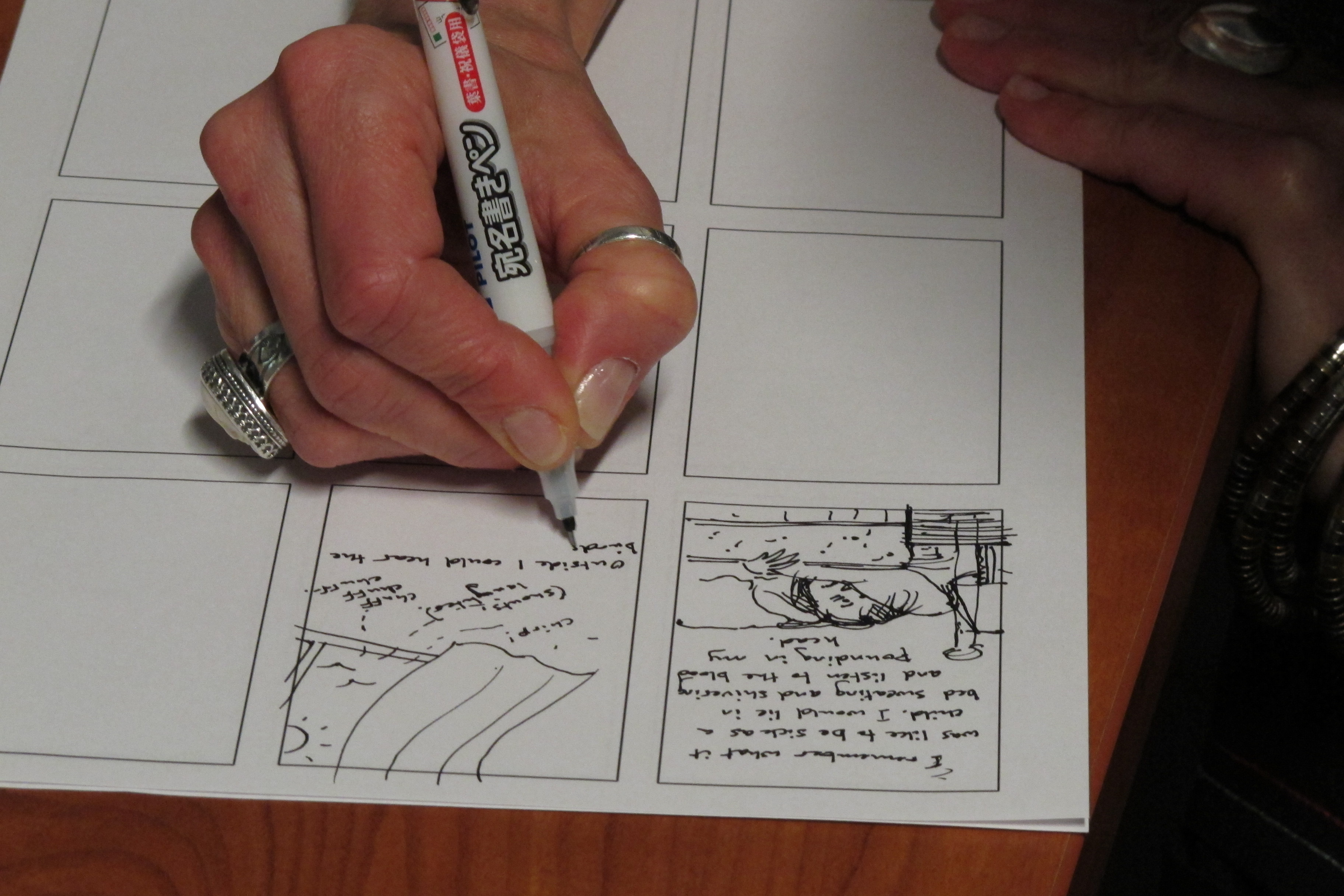
An introduction to this expanding field of study and practice which examines the interface between the medium of comics and the discourse of healthcare. Led by the celebrated comics artist and doctor, Ian Williams, (who coined the term “graphic medicine” and authored the critically acclaimed Bad Doctor trilogy of graphic novels), you will be introduced to some of the important works in the field. You will start to make comic strips in an enjoyable and relaxed environment.
This event will be on site and provide an opportunity to meet each other, ask Dr Williams about his motivation for initiating ‘graphic medicine’ and engage with your own creativity.
Dr Ian Williams is a comics artist, writer and doctor who lives in Brighton. His graphic novel, The Bad Doctor, was published in 2014 and followed up in 2019 by The Lady Doctor. Both were critically acclaimed and he is working on his third, for the same publishers, provisionally entitled The Sick Doctor, which will be published in 2022. He studied Fine Art after medical school and then became involved in the Medical Humanities movement. He named the area of study called Graphic Medicine, building the eponymous website in 2007, which he currently co-edits. He is Founder of the not-for-profit Graphic Medicine International Collective and co-author of the Eisner-nominated Graphic Medicine Manifesto. He has been the recipient of several grants has contributed to numerous medical, humanities, and comics publications, and has sat on the board of a number of arts and humanities organisations. Between May 2015 and January 2017 he drew a weekly comic strip, Sick Notes, for The Guardian. He recently made an animation with Matilda Tristram for The Care Under Pressure project from Exeter University.
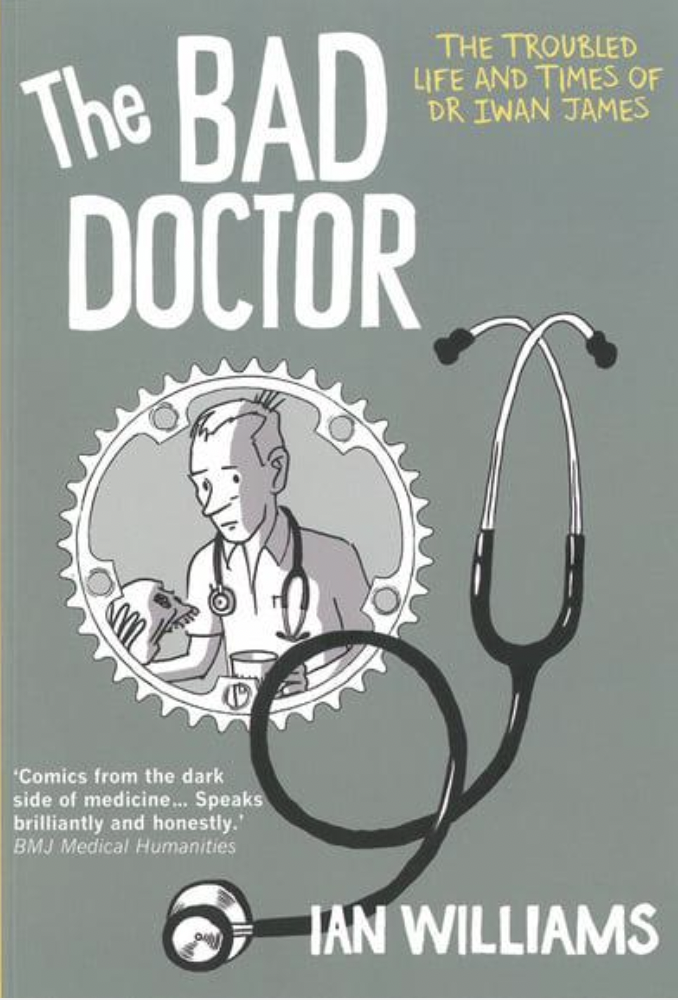
The Experience of Portraiture in a Clinical Setting
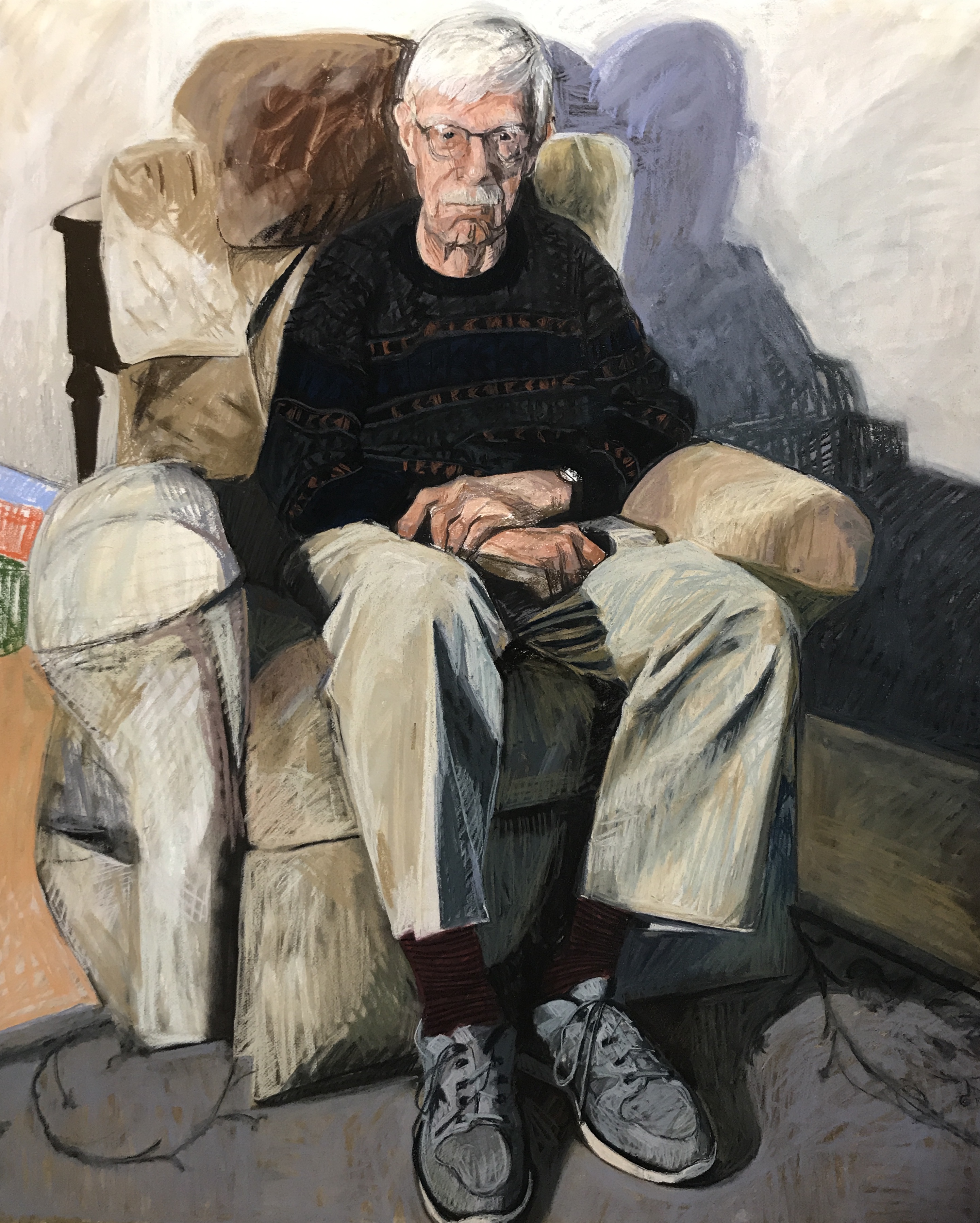
A unique opportunity to see the paintings of celebrated artist and researcher, Dr Mark Gilbert and hear about his process during collaborations with patients and clinicians exploring the value of portraiture in healing and clinical interactions.
Dr. Mark Gilbert will discuss the challenges and rewards of using the artistic medium of portraiture to explore the experiences of patients and their caregivers. Gilbert has built up an extraordinary practice, projects including Saving Faces at The Royal London Hospital and Portraits of Care at the University of Nebraska Medical Center (UNMC), both exhibited widely in venues across Europe and the US, including the National Portrait Gallery, London. Drawing on these he will describe ways in which the arts/sitter interaction parallels salient aspects of the doctor/patient relationship.
This workshop will also include a drawing exercise, in which Dr. Gilbert will encourage the class to explore how drawing enables us to better see and feel.
No particular skill or previous experience of drawing is necessary, just a willingness to have a go in order to understand the ways in which drawing can refine the way we look and observe.
Drawing with Onya McCausland
The workshop will provide a structure enabling you to develop both your observational drawing skills and creative imagination by experinenting with each of these three perspectival methods in turn: point linear perspective, isometric drawing and aerial perspective.
Facilitated by Onya McCausland, visual artist and research fellow, Slade School of Fine Art, UCL.
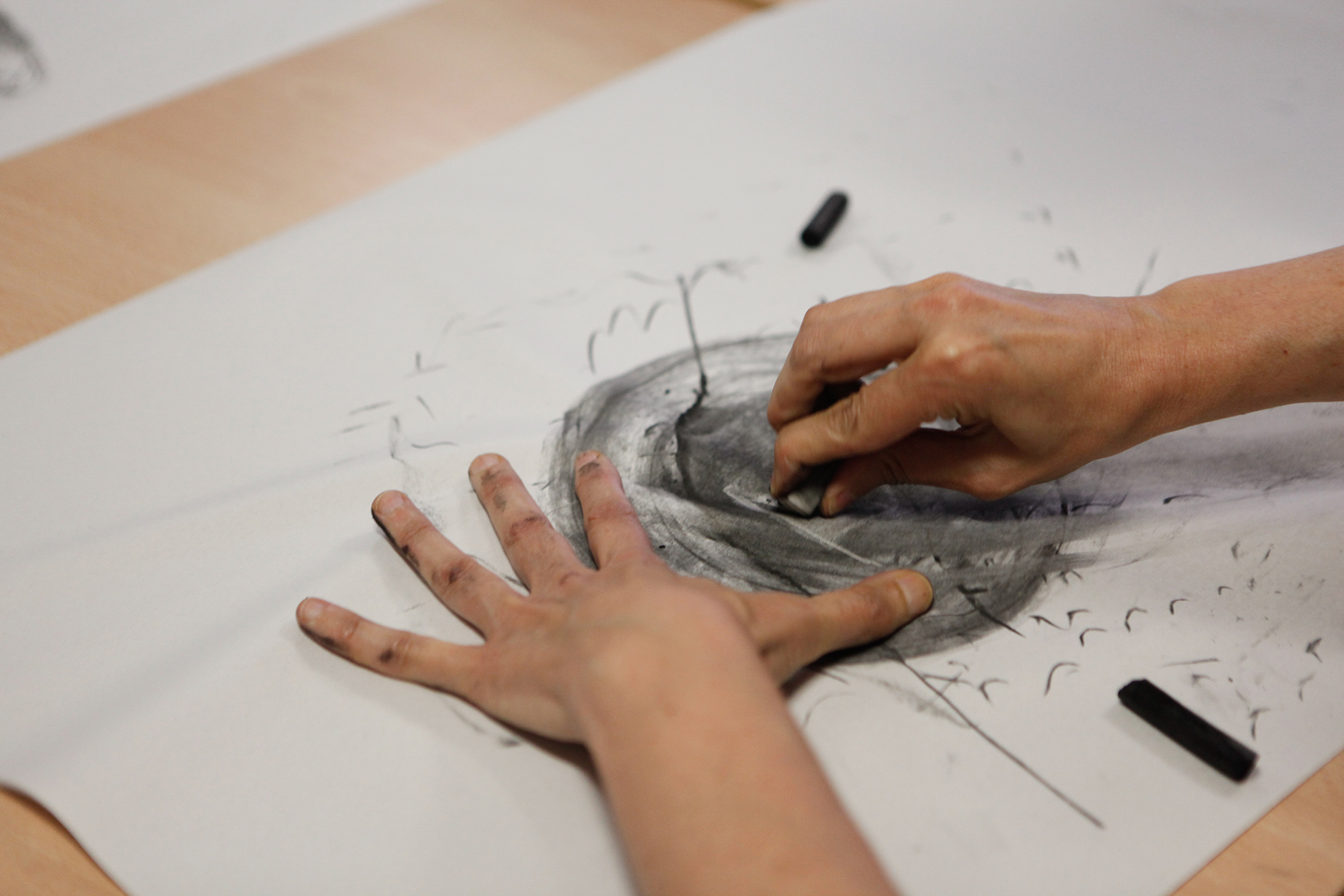
Saving Faces: A Reflection
Surgeon Professor Iain Hutchison and artist Dr. Mark Gilbert will reflect on their collaboration on the Saving Faces Art Project, which used portraiture to explore the experience of Iain's patients.
Attendees will also be invited to participate in a short creative activity.
No experience of drawing necessary.
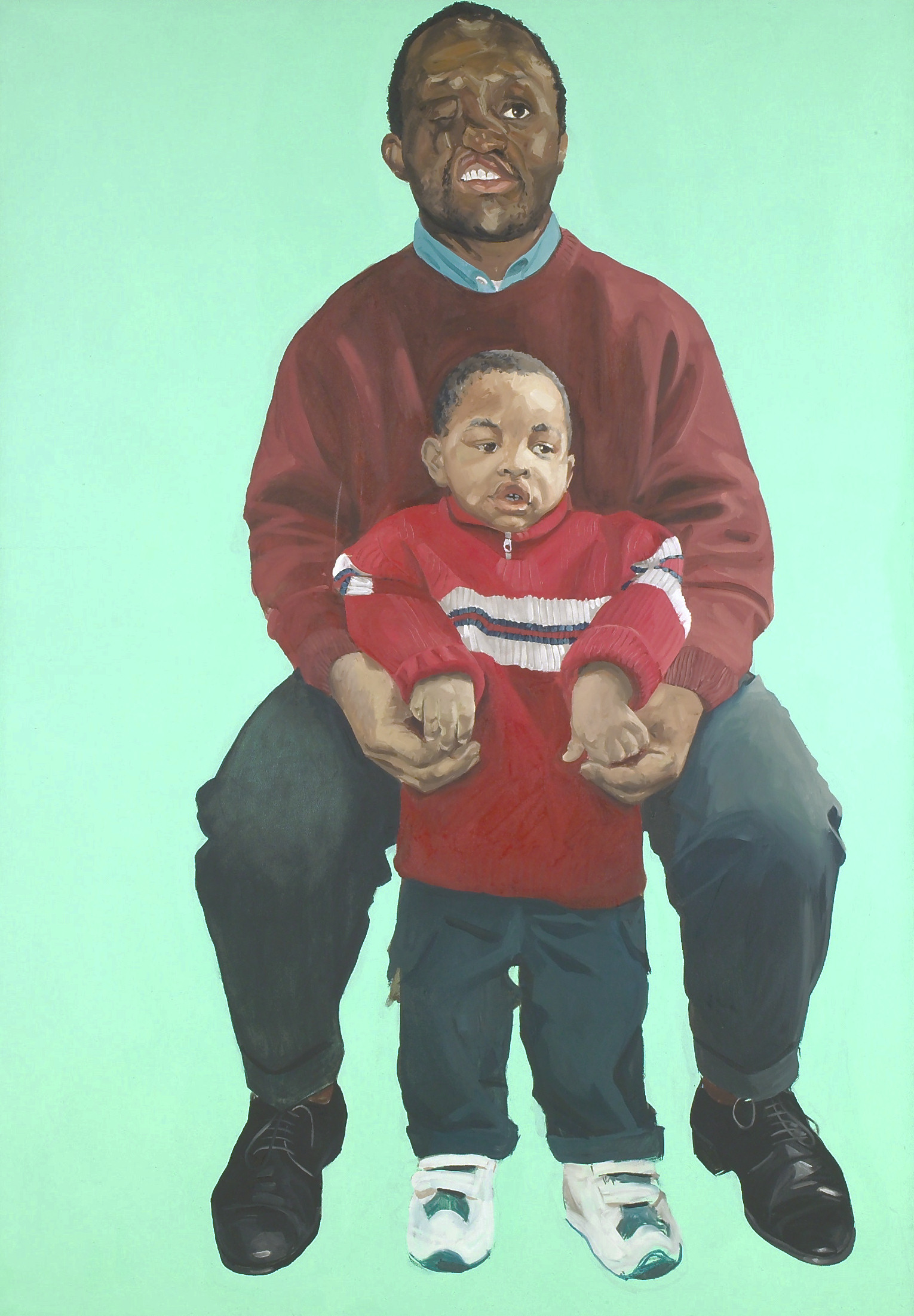
Art of Pathology Workshop II: Sketching the Specimens
Artist Lisa Temple-Cox will guide participants through a number of seeing and drawing techniques to aid in making visual records, using a number of specimens from St George's pathology museum. Working from photographs, we will explore line, tone, and erasure to capture texture, depth and detail,using everyday materials and stationary. We may also briefly touch on working with other media.
An Introduction to Graphic Medicine with Dr Ian Williams
An introduction to this expanding field of study and practice which examines the interface between the medium of comics and the discourse of healthcare. Led by the celebrated comics artist and doctor, Ian Williams, (who coined the term “graphic medicine” and authored the critically acclaimed Bad Doctor trilogy of graphic novels), you will be introduced to some of the important works in the field. You will start to make comic strips in an enjoyable and relaxed environment.
This event will be on site and provide an opportunity to meet each other, ask Dr Williams about his motivation for initiating ‘graphic medicine’ and engage with your own creativity.
No experience or drawing skill is required.
Student Art Group: Feed your Creativity Taster
Bring your lunch and join us at our first taster drop-in art session. Join fellow students to create as a community, and share your artistic flair! MBBS student Kaylee Gregor will facilitate the group and provide art supplies and snacks. You can drop in as you please, no previous experience needed.
Creativity as a Tool: Global Health Promotion, Dementia and Mental Health Care
Join Kunle Adewale and dive into a world of inclusive and interdisciplinary engagements where creative expression becomes a powerful tool for promoting global health, healing and self-discovery. This journey unveils the transformative impact of arts on holistic health, forging a path to a harmonious future.
No previous experience of arts practice needed, just a willingness to come and enjoy!
Join Kunle Adewale, a Nigerian International Arts in Health practitioner, for a practical and theoretical workshop to explore the dynamic fusion of arts, technology, and health, where creativity nurtures well-being. Kunle will introduce participants to some of his transformative projects using arts practice with people with dementia and mental illness, set up through the Arts in Medicine Fellowship in Nigeria which he founded. Participants will be given opportunities to experience some of these creative practices for themselves and to learn about their benefits.
Dive into a world of inclusive and interdisciplinary engagements where creative expression becomes a powerful tool for healing and self-discovery. This journey unveils the transformative impact of arts on holistic global health, forging a path to a harmonious future.
About the facilitator
Kunle Adewale is a Multimedia Artist, Curator, Cultural Producer, Mental Health Advocate, and Arts in Health Practitioner based in Manchester, United Kingdom. He graduated from the Department of Fine and Applied Arts, Obafemi Awolowo University, Ile-Ife, Nigeria. Adewale is the founder of the Global Arts in Medicine Fellowship, an organization that trains students and professionals across disciplines, cultures, and generations in utilizing creativity and collaboration for good health and well-being. His Fellowship has trained over 1000 persons from Africa, Asia, Latin, and South America, and Europe to bring positive change to their immediate community.
Curating Subjectivites: Art and Mental Health
At this event, Dr. Errol Francis, Artistic Director of Culture&, will shares his research and practice in mental health advocacy, informed by politics of racialisation and queer activism.
Starting with interrogating the use of art as an attempt at ‘curing’ mental health issues and harmful narratives on illness and health, Errol will be presenting a series of interdisciplinary creative projects with a variety of approaches to mental health.
Refresh! 15 minutes of movement at your desk
Movement workshops are taught by Anusha Subramanyam, a choreographer, movement therapist, and Asian dancer from the Beeja dance company. These workshops encourage participants to find and explore their own possibilities of movement by building awareness of sensations within the body and exploring improvised movement and the use of breath. Accompanied by live music, vocal, and percussion.
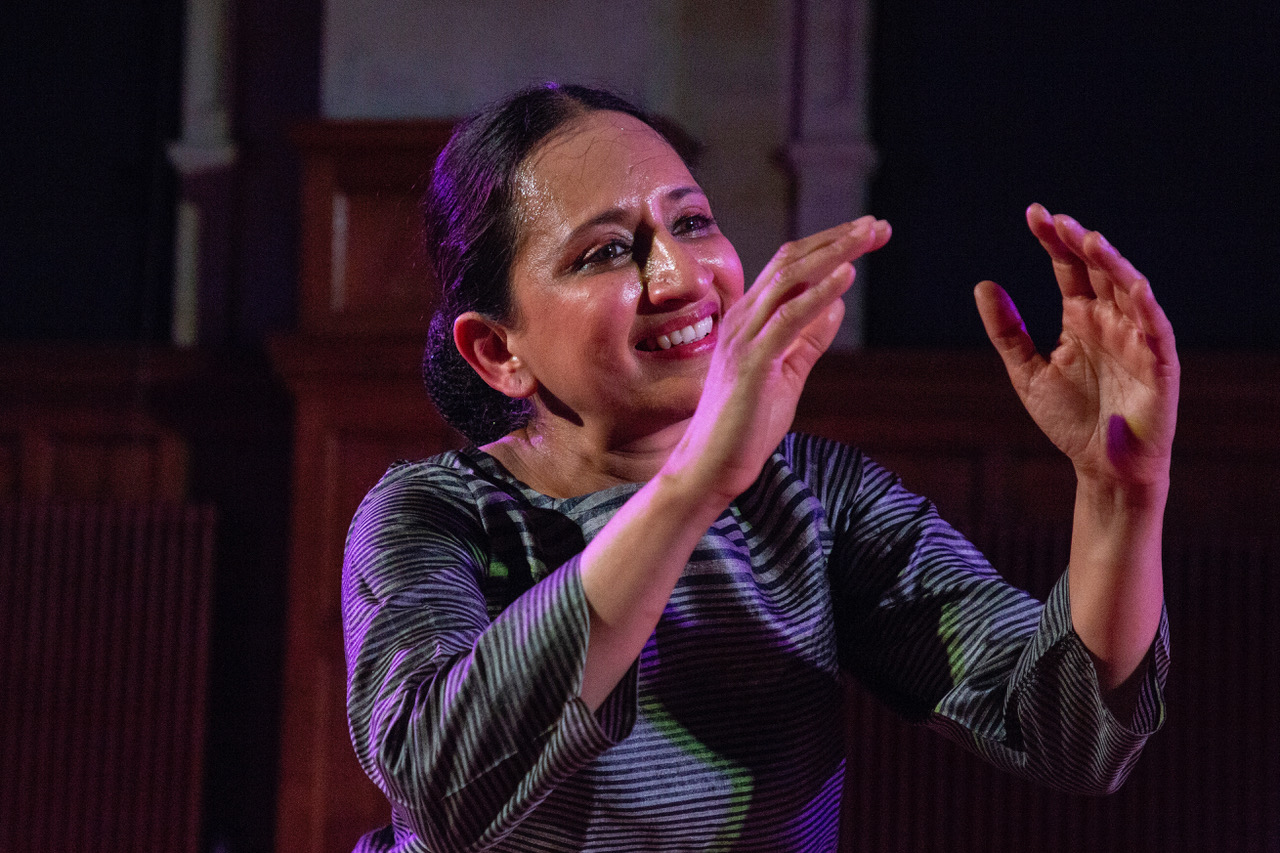
Join movement therapist, Anusha Subramanyam, for 15 minutes of movement at your desk. These lunchtime sessions are perfect for anybody who spends a lot of time working at a computer or can’t find time for relaxation.
Learn exercises you can practice on your own in a small space, revitalise your mind and body and feel less tied to your computer. Don't worry if you haven’t done any movement before – everyone is welcome.
No equipment or experience is needed. All sessions are accessible via Teams or Zoom.
Choogh Choogh: Lunchtime performance and online workshop for children under 5 and their parents
Calling all staff, students and alumni with young children, this workshop is for you! Experience the sights, sounds and smells evoked through South Asian dance, music and theatre; and meet some amazing characters along the way. The journey starts with the audience getting a special choogh choogh ticket. Three artists weave a traveling tapestry with three scarves, morphing from one scene to the next as the sights, sounds and smells whiz by. The sound scape is rich with the sounds of the train, hawkers, festivals, musicians, ambient sounds of river, jungles and cities. The artists sing songs which are specially written for children – Chai Chai, Coffee Coffee and Kites Kites everywhere.
Duration 25 mins musical video plus 20 mins online music and movement workshop. Take an hour away from work to join us with your children as they interact with the choogh choogh team and engage their imaginations.
Bharatanatyam Dance Workshop: Emotions, Health and the Body
Come and join these sessions where you will explore the rich narrative landscape of nine emotional states key to classical India dance.
Anusha Subramanyam’s dance practice spans four decades of exploring movement and dance in multiple ways that is inclusive but stays true to her roots as a Bharatanatyam dance artist.
At St George Open Spaces we want continue to celebrate the diversity of skills and talent of the students staff and the larger community that we engage with.
As part of this we invited Anusha to deliver Bharatanatyam sessions based round nine emotional states to provide an opportunity for all to dance their way through these emotions and notice the impact on their sense of wellbeing.
We and Anusha are delighted to welcome dancers and non dancers to explore and embody these emotions for yourselves. The session will be a small window to understanding the relation of mind to the body and the impact of the emotions on the body and illness and wellbeing.
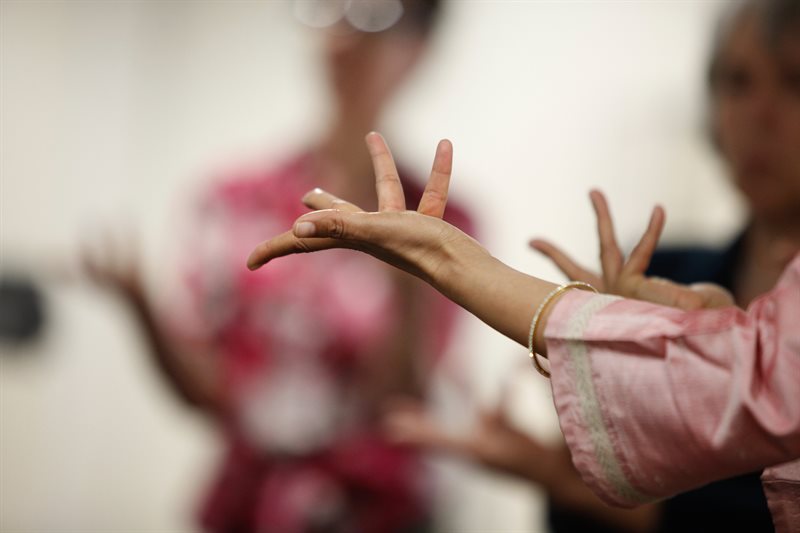
Anusha returns to St George’s in 2020 with a series of inspiring and exhilarating workshops. The workshops will encourage participants to find and explore their own possibilities of movement by building awareness of sensations within the body and exploring improvised movement and the use of breath. Elements of Indian dance, yoga, and somatic practice will be incorporated into the session, highlighting the value of movement to health promotion and well-being.
Sessions will be delivered remotely for the time being. No previous experience of movement necessary and the workshop is suitable for all abilities. Previous attendees described the sessions as: ‘inspiring’, amazing’, ‘exhilarating’.
Lunchtime Taster Session with Anusha Subramanyam
An inclusive dance movement workshop to get you up from your desk. Come and meet others and discover your inner power of movement. We welcome all. No previous experience of dance or movement necessary.
Back by popular demand, this taster workshop will: build awareness of sensations within the body; explore improvised movement and breath, use elements of dance and yoga. Try out the taster session and if you enjoy it you might want to enrol on the workshops Anusha will be running later in the year.
Refresh! 15 minutes of movement at your desk
Join movement therapist, Anusha Subramanyam, for 15 minutes of movement at your desk. These lunchtime sessions are perfect for anybody who spends a lot of time working at a computer or can’t find time for relaxation.
Singing for Respiratory Conditions
Experience first-hand how using singing can help adults living with long term respiratory conditions manage their breathing, improve fitness and enhance wellbeing. A background explanation of the conditions we work with, objectives for our work and the structure of how we work with our hospitals will be followed by an interactive full singing for breathing workshop.
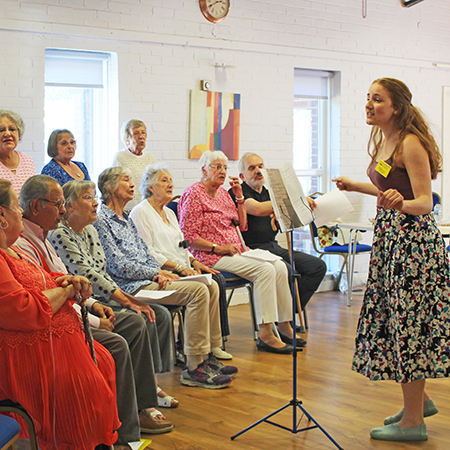
Gamelan, Music and Wellbeing Workshop
Gamelan instruments from Indonesia are a particularly useful tool for exploring the effect of music-making on well-being, allowing space to negotiate relationships with others and perceptions of the self.
In this workshop John Pawson will share an approach to group music-making developed in secure institutions (UK prisons, YOIs and secure hospitals), whilst working for the charity “Good Vibrations”. Rather than treating music as an art to be taught, this approach focuses on individual participants discovering their own musicality, their ability to express themselves through music and ultimately to feel connected to other people.
Working with a set of gamelan instruments from Central Java, Indonesia, this will be a practical music workshop with reflections and observations along the way. Participants will need to sit on the floor (though stools or chairs can be provided if needed).
Open Symposium: Music for Wellbeing
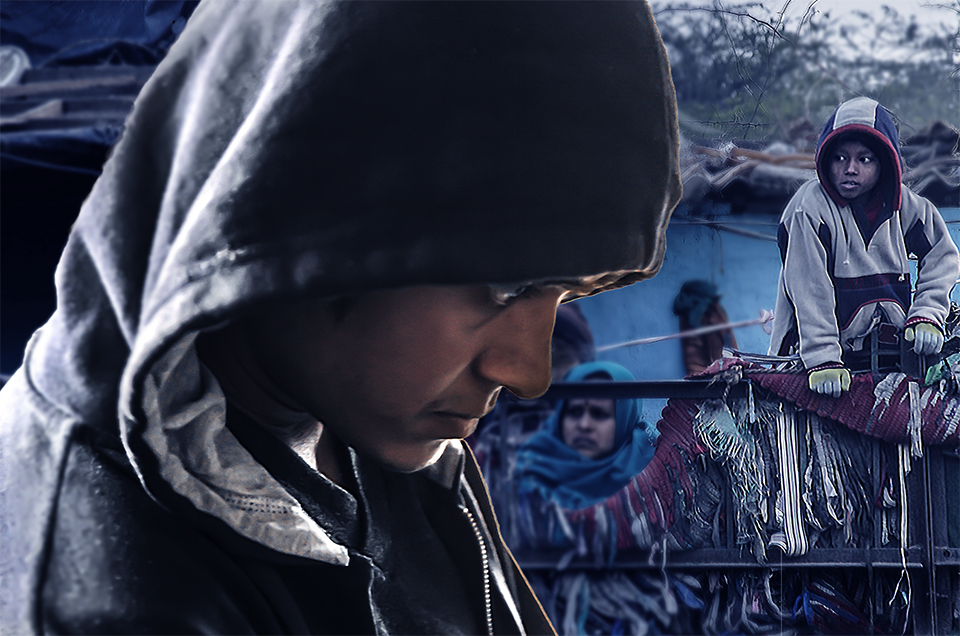
This first of the Open Spaces Open Symposiums is a rare invitation to join them at St George’s for this one off event to hear about the highly successful Connection Through Music events (including working with the Regional Staff Wellbeing Hub, set up to deal with the psychological fallout of the pandemic on staff) and the online Music for Wellbeing playlists. Come along, engage in conversation and ask your questions. Read more about Music for Well Being.
With wellbeing researcher Dr Paras Patel, Dr Kennedy and Prof Osborne have worked on neurophysiological measures of human emotion in music (in particular HRV) and have collaborated in bringing together experiences of dealing with trauma in the health services and in the NGO sector respectively - something of particular importance during the pandemic.
They have developed a number of interventions for mental health, including the highly successful Music for Wellbeing website on NHS TEWV Recovery College online, weekly “Connection through Music” webcasts, and creative projects for NHS staff resilience hubs.
A special feature of the work is X-System, a technology invented by the late Professor Paul Robertson ARSM, Professor of Music Medicine at the Peninsula Medical School, and Nigel Osborne, which models the musical brain and can predict with accuracy the neurophysiological effects of music in all cultures. This is now being trialled and deployed in a wide variety of areas, ranging from perinatal care and prevention of epilepsy to psychiatric care, and care of the elderly.
Nigel is working in music and well being programmes in various music hubs across the UK, in particular a pilot with Dorset Council as well as composing a chamber opera, Naciketa, with libretto by American/Chilean poet and writer, Ariel Dorfman. A concert performance of Naciketa will be at the Queen Elizabeth Hall on October 15th 2021 produced by Opera Circus and streamed to a wider audience through the Southbank. More information on this soon.
Angela and Nigel will share stories, a couple of short films, explore the x-system process with you and encourage questions and conversations.
Dr Angela Kennedy is one of the UK’s leading innovators in mental health care. She is currently the North of England Clinical Network Lead for Mental Health, and NHS England Lead for Trauma Informed Care. She is a former Board member of the European Society for Trauma and Dissociation, and Compassion leadership SIG Chair of Compassionate Mind Foundation.
Professor Nigel Osborne MBE FRCM FEIS FRSE is a composer, aid worker and former Reid Professor of Music at Edinburgh University, who specialises in using music to support children who are victims of conflict.
Singing for Lung Health
An introductory workshop facilitated by Phoene Cave .
This event will provide:
- background and context for the work within the arts and health field
- an overview of the impact of chronic lung conditions & dysfunctional breathing
- patterns (and the difference between the two)
- a brief precis of current & future research
- singing for Lung Health objectives with overview of delivery, content and best practice
- a demonstration of the practical application utilising music, movement, mindfulness and singing to support breathlessness.
Phoene Cave is an HCPC registered music therapist and clinical supervisor. She is a singer, vocal coach and a qualified shiatsu practitioner. She has worked in music with communities in nurseries, schools, hospitals, prisons and refugee hostels as well as lecturing across education, community music and music therapy settings.
She set up Singing for Breathing at six major London hospitals and was the first singing leader in 2008 at the Royal Brompton Hospital. In 2015, she was invited to write and deliver a Singing for Lung Health training programme for the British Lung Foundation and has trained 200 new singing leaders, 80 of them funded by the BLF. She was later Head of Music Services London at Nordoff Robbins before spending 2 years in clinical music therapy practice working at HMP Bronzefield with the prison’s most challenged and challenging women, as well as in the mother and baby unit. In 2018 she moved to the south coast of England working with children and young people with social, emotional and mental health needs.
Connections through Music
We are excited to invite you to the final Open Space event of this year; the first Open Spaces Open Symposium, with NHS England’s Lead for Trauma Informed Care, Dr Angela Kennedy and composer and aid worker Prof Nigel Osborne, MBE. The Open Symposium will be open to the public, so please do spread the word to other students, staff, alumni, colleagues, and friends.
Angela and Nigel will share stories, film, new technology (x-system) through experimentation, questions and conversations. Together with wellbeing researcher Paras Patel, they have worked on neurophysiological measures of human emotion in music (in particular HRV) and have collaborated in bringing together experiences of dealing with trauma in the health services and in the NGO sector respectively - something of particular importance during the pandemic.
This first of the Open Spaces Open Symposiums is a rare invitation to join them at St George’s for this one off event to hear about the highly successful Connection Through Music events (including working with the Regional Staff Wellbeing Hub, set up to deal with the psychological fallout of the pandemic on staff) and the online Music for Wellbeing playlists. Come along, engage in conversation and ask your questions.
Medicine and Music in an Unstable World
Facilitators: Prof Roger L. Kneebone, Geordie Waddellon.
Breaking Barriers: Classical Style and the Hollywood Portrait
Award winning international Artist Joy Gregory returns to St George's with an exciting photography workshop focusing on her work 'Breaking Barriers' with the Black Cultural Archives. An opportunity to see some of Joy’s extraordinary images and to experiment with creating your own photographic portrait, exploring your own identity.
From Rita Hayworth to Rita Ora good lighting is essential in the creation of a great image. This workshop will explore the components of good portraiture through the use of lights, reflectors, camera position and pose.
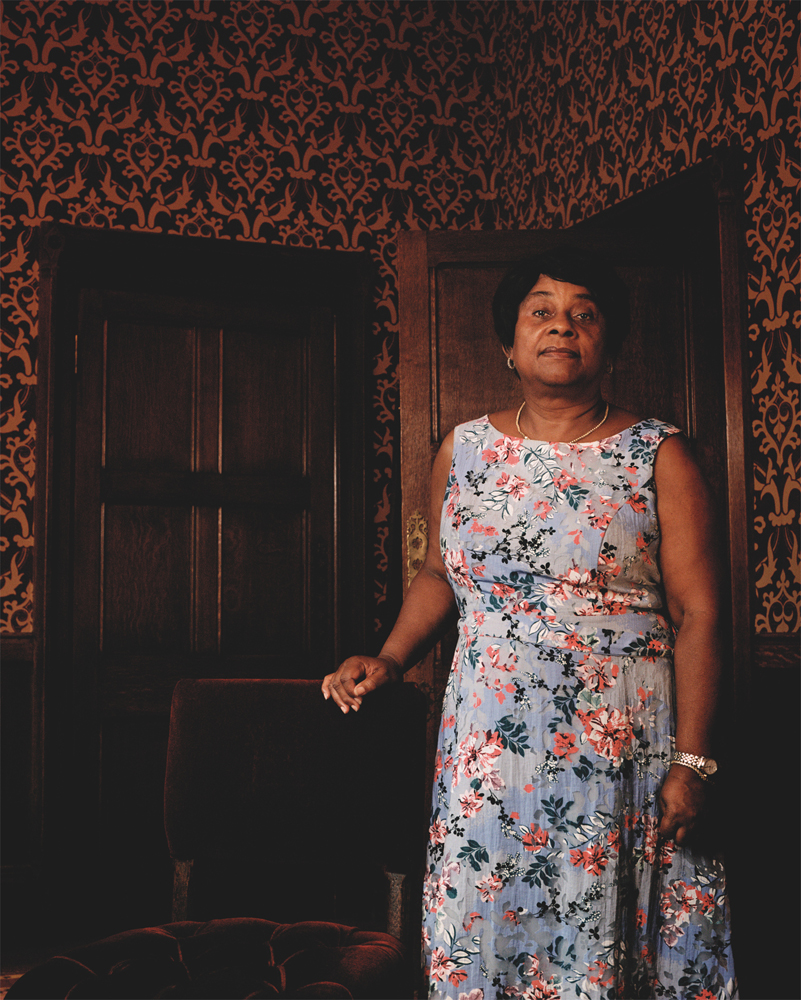
Following the success of her over-subscribed workshops last year, international photographer Joy Gregory returns with two new exciting workshops; one for Black History Month stimulated by her recent work on Matron Bell and other nurses who have contributed to the NHS and one on cameraless photography inspired by her new project exploring the healing properties of Jamaican plants.
The second workshop will be a space for small discussion groups to explore, reflect and share knowledge/stories on the use of plants as medicine in different cultures. There will also be an opportunity to reflect on the use of plants in present day pharmaceuticals and clinical practice.
Inspired by the work of Anna Atkins participants will make their own cyanotype prints in response to the discussions on medicinal plants. There will be a demonstration on how to make cyanotype prints from scratch during the workshop. All materials will be provided to enable you to make your own at home. There will be a follow-up workshop later, to share work, experiences and seek further advice.
Photography workshop with Joy Gregory
Joy Gregory is an artist working with photography and lens based media. Her work often explores the politics of identity from gender and race. She is currently working on a commission for the Black Cultural Archives reflecting on images of black leadership, and is creating five portraits of prominent black women whose life stories are about breaking barriers.
During the lockdown her work was featured as Artist of the Week for Artist Residency Centre in Botswana, alongside Vanessa Jackson and Diana Hyslop. She was also one of the Arts Foundation Fellows who did an instagram takeover featuring the Black Cultural Archives commission, ‘Breaking Barriers’, and coinciding with conversations relating to Black Lives Matter. Her long-term project exploring language and identity engages with the last speakers of the endangered language Nluu.
She is an associate lecturer in Fine Art Photography at Camberwell School of Art. Her work is in many major collections and she exhibits across the world including at the Venice and Australian Biennales.
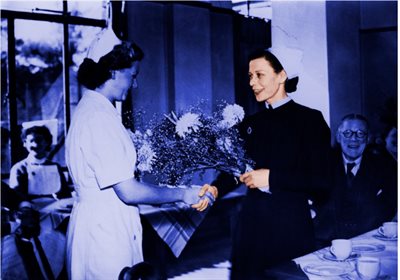
Rapid Response: Designing your Archive in the Wake of the Pandemic
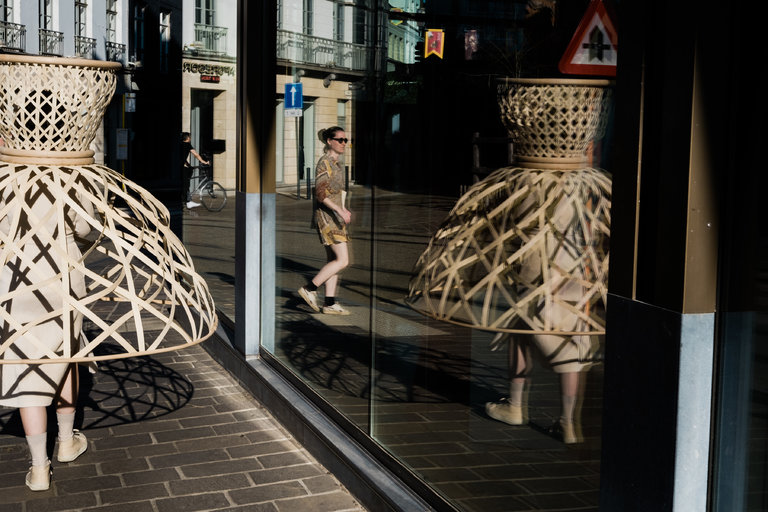
Learn about the process of rapid response archiving with History of Design researcher Tomas Brown, and Fleur Elkerton and Anna Talley, founders of Design in Quarantine. Experiment with preserving your own pandemic experience through image, writing and object.
Bring an object, piece of writing, or image along and we will consider how you can preserve it in a personal archive, its significance, and its different implications as a record.
Founded in April 2020, Design in Quarantine is an online archive that documents and preserves design responses to the coronavirus pandemic in real time. After witnessing museums and libraries around the world closing on an unprecedented scale, students on the Royal College of Art and Victoria and Albert Museum’s History of Design MA began collecting designs related COVID-19 as a resource for future historians and researchers. The digital archive has since been inundated with new submissions. From social distance hat shields in Italy to fish masks in Japan, full-body disinfection machines in Hong Kong to colour hazmats designed for clubbing in Los Angeles, all the designs collected so far reflect the incredible ways the design community has responded during this time of crisis.
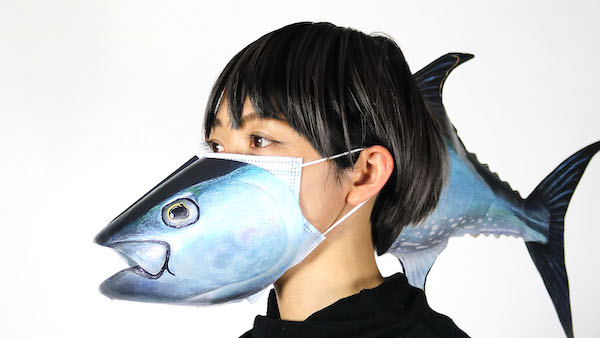
Using creative design methods: Making futures together for healthcare
This session is led by Professor Mike Waller, Head of Design at Goldsmiths, who has been working on building innovation skills in a number of sectors including healthcare, governments, businesses and charities. This workshop will introduce a creative design method to help us think together creatively and apply our own imagination to build scenarios for a range of possible futures.
It is important that we all have a voice and contribute to the futures we would like to be part of. This session is interactive and will apply creative design methods to your own areas of expertise in healthcare. The activity will involve a short talk about encouraging your own creativity and curiosity; the building of shared timelines of social, technological, and political change; the development of future scenarios; and the sharing of our imaginative ideas through the development of tangible stories with simple sketch design props.
You will need to bring a few bits of material to the online session. This could include a few of the following; some paper, a few pens, some tape, old cardboard packaging or boxes, silver foil or anything else to hand. Don’t worry if you don’t have materials - we can improvise. You do not need any design skills or previous experience of design or making, just a willingness to have a go and share ideas. All students and staff welcome.
Weaving Land and Health: The Impact of Eviction on Mental Health
A workshop exploring the impacts of de-forestation on mental health. Sylvia Kokunda (CEO of Action for Batwa Empowerment Group (ABEG) will share the experiences of the Batwa community in Uganda, introducing one of the cultural practices the Batwa have adopted as a response - basket-weaving. Participants will then be invited to try out some weaving for themselves “thinking through doing” about materials, their relation to land, medicine, and health. This workshop aims to highlight the impacts of environmental change to the Batwa.
Sound and silence: Ways of listening
Walk so silently that the bottoms of your feet become ears - Pauline Oliveros, Sonic Meditations
The practice of healthcare requires ‘deep’ listening and yet how much attention do we pay to sound in comparison to sight? Sound artist, lecturer and musician, Dr Tansy Spinks (Middlesex University), will facilitate two workshops introducing Michael Chion’s three modes of listening. In between sessions participants will be given a score or ‘sound walk’ to follow in their local environment and some short readings reflecting on ways in which we receive, analyse and filter sound. These workshops are introductory and participatory.
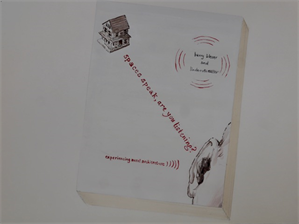
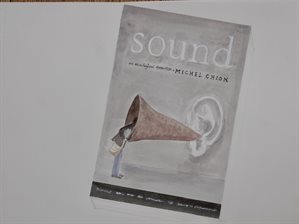
Art of Pathology Workshop II: Visual Note Making
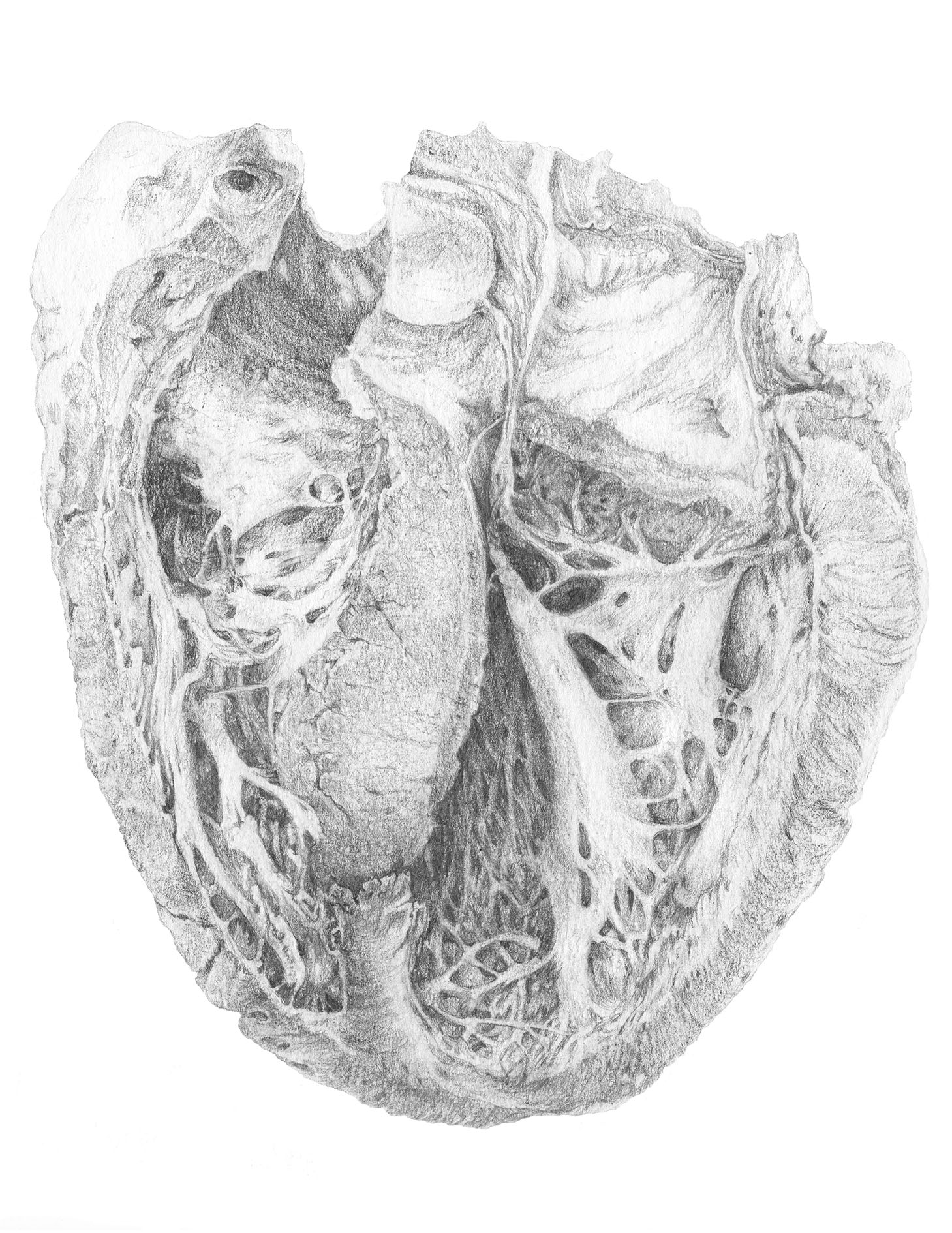
An introduction to the Museum of Disease and to the art of visual notemaking.
This is an opportunity to interact with the unique collection of preparations/specimens from the Museum of Disease at St George’s on site. Following on from our successful online Art of Disease workshop last term with Lucy Lyons, we are offering an onsite workshop this term with Lisa Temple-Cox. During the workshop participants will be guided through a number of drawing techniques to aid in making visual records, using specimens from St George's pathology museum.
We will explore line, tone, and erasure to capture texture, depth, and detail, using everyday materials and stationary. We may also briefly touch on working with other media.
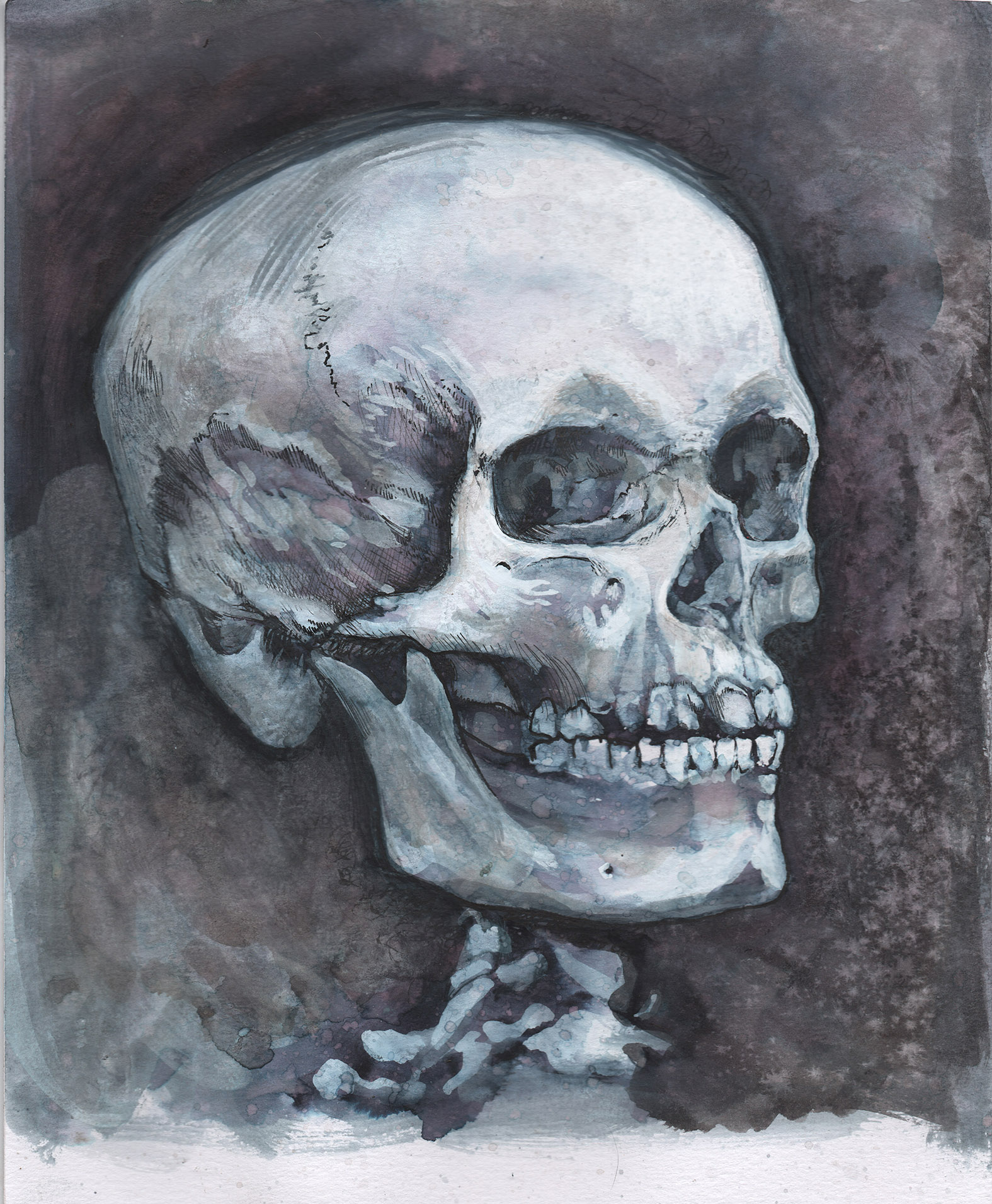
Lisa Temple-Cox bio: My research explores the aesthetics and symbolism of the medical museum. It examines our subjective experiences and perceptions of the body in life and death using a range of media, including drawing, painting, assemblage, and installation. I have undertaken a number of artist residencies in Europe and the USA – these include the Mutter Museum in Philadelphia, NHS Tissue Bank in Liverpool, Oregon State University, and the Anatomy Museum of Edinburgh University.
Art of Disease Workshop I: Exploring Specimens from the Pathology Collection
Facilitated by artist Dr Lucy Lyon and Museum of Diseases curator, Dr Carol Shiels
An introduction to the museum of disease and to the art of slow looking.
In this session we will spend time looking closely at unique specimens from the SGUL pathology collection. You will be led through some short practical exercises and then have the opportunity to understand these fascinating specimens through looking and observing. By the end of the workshop you will have produced drawings that document your experiences and gained a greater appreciation of encounters with the unfamiliar.
You do not need to have any experience of drawing or of pathology to enjoy this workshop, just a willingness to look!
